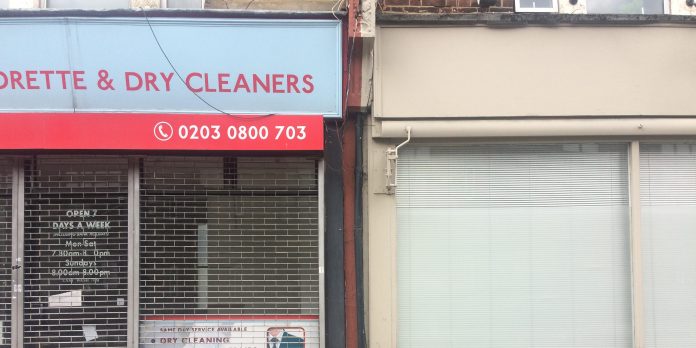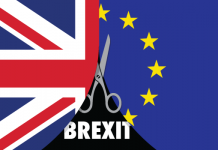The Brexit Party is looking for policies. There are a small number of important criteria. They have to keep the Leave coalition together: no excessive spending or wild tax cuts. They need to align with the wider drivers of the Leave vote; in particular, a dissatisfaction with the status quo and a sense that the “governing classes” have lost their way in delivering policies aligned with the outlooks and aspirations of large numbers of people. And, of course, new policies should make some or all of us measurably better off.
A good starting point for the Brexit Party is to look at bureaucracy and red tape. Cutting through this will please left and right Leavers; who generally have no great love for bureaucracy… No-one feels red tape more heavily than our heroic small business sector which makes up 99% of all private sector businesses in this country and provides 60% of all private sector employment in the UK.
Surveys of small businesses confirm that the heaviest regulatory burden of all is the complexity of complying with tax legislation. They have to wrestle with PAYE, national insurance, VAT, business rates, and income tax or corporation tax. None of these are straight-forward, indeed, the UK’s tax code is reported to be the longest in the world – running at over 17,000 pages. Surveys run by the Centre for Policy Studies (CPS) report that small businesses spend thousands of pounds a year on tax advisors and assistants, as well as spending hundreds of their own hours on doing their taxes. This is time that should be devoted to running their businesses; creating employment, and providing goods and services. The CPS recently suggested a better way – in a report titled Think Small, A Blueprint for Supporting UK Small Business.
The idea is that small businesses should pay a single tax – a straight (small) percentage of turnover. This would replace PAYE, national insurance, VAT, business rates, and income tax / corporation tax. The CPS suggested that if it were set somewhere between 11.5% and 13.5% of turnover it would remain broadly revenue neutral. Such a reform would save small business thousands of pounds in tax compliance costs as well as hundreds of hours a year currently spent dealing with taxes. It would also reduce stress and worry, and enable people to trial new business ventures with far lower up-front cost, risk, and worry.
Business rates are the most psychologically punishing of our taxes. They probably do the most economic damage (which is a proxy for damage to well-being) per pound of revenue raised. This is because you have to pay them before you earn a single penny. Imagine being a young man or women who would like to test out a business idea in a run-down High Street. Knowing that the business rates are payable before you even have your first customer is enormously off-putting to idea-testing and experimentation, and so therefore to high-street regeneration and community building.
It is not often noted though that PAYE and national insurance are also, in a sense, upfront costs, because as an employer you have to pay them to / for your employees irrespective of your revenue – the government gets money from you even if you get no revenue from your business. They pile on cost and risk.
In terms of complexity, and high costs of compliance, the income tax is the worst. Every expense you can deduct from your revenue reduces your income calculation and therefore your tax. If you buy smart clothes only for work should these be tax deductible? What about half the costs of your car, your phone, that printer you have at home but only use for work? You get how the complexity escalates into – well thousands of pages. That is why a turnover tax is a genius idea. All that complexity about what counts as a cost is gone at a stroke for small businesses.
A report by the Federation of Small Businesses stated that 77 per cent of small firms use tax specialists to calculate their tax liability, spending a staggering £5,000 on average on tax compliance per year. It also suggested that small business lose the equivalent of an average three weeks a year to tax compliance. A third of those surveyed said that tax had stopped them from growing their business. (CPS report, page 20) So there is another important win-win here. The enormous time and cost of businesses dealing with tax obligations is called by economists a “Dead Weight Loss”. It’s time and money and stress and effort that creates no well-being for people and the economy at large. It’s money down the drain, holes being dug and filled in again. If the administrative burden of taxes was lightened all that economic effort could be focused elsewhere. Small businesses could spend extra hours in the week focusing on their businesses, their employees, their goods and their services. Over time, the number of people working in the tax compliance industry could decrease – with these people seeking more productive opportunities elsewhere.
The turnover tax sounds like such a no-brainer you have to ask, where is the downside? Different businesses have different underlying cost to revenue ratios. So if you use a turnover tax, some firms will pay more tax than others on their actual income. This sounds unfair. In reality, I would argue, unfairness is already baked into the complex tax code. There are so many opportunities to claim additional deductions if you structure your business this way or that, or find a way to label a cost as A instead of B, or ask your tax accountant to chase down every last opportunity for tax minimisation. Many small businesses are also not aware of tax reduction opportunities simply because of the sheer complexity of it all. That unfairness would be gone at a stroke. But the CPS also suggest that a turnover tax could be voluntary – any small firm with really high costs compared to revenue could continue to pay tax as they do today.
***
There are 5.6 million small businesses in the United Kingdom. They employ around 13 million people, with a turnover of approximately £1.5 trillion. Many are family businesses. Small businesses are often rooted in the local community and are likely to be far more responsive to community needs than anonymous corporate giants. Drastically cutting tax complexity for small business would give them some advantage back. It would literally give them hours in their week, as well as hard cash back. Lowering start-up costs would reduce the risks of going into business and would help spur the innovation needed, post Brexit. It would help regenerate high streets and create new opportunities for small businesses in struggling small towns.
Cutting bureaucracy, supporting small businesses, building community, energising struggling towns and regions. These are all important things for Leave voters – and for everyone else. This is an ideal policy for the Brexit Party.





